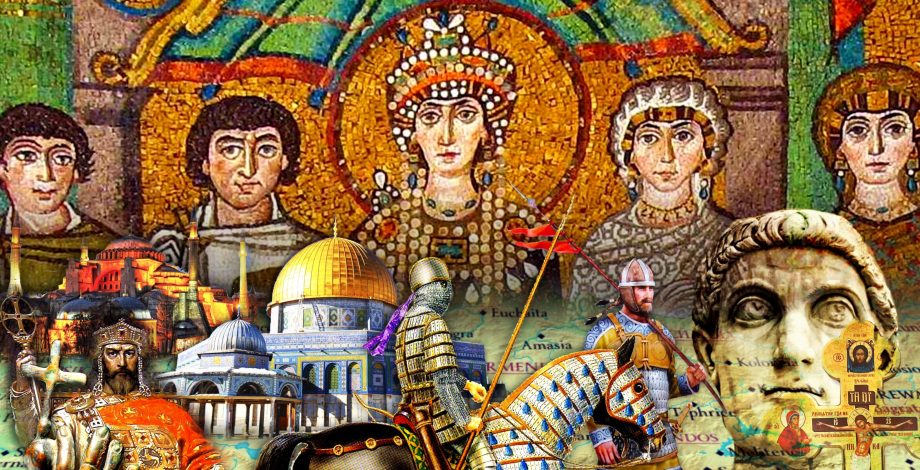
Our final batch of questions for this century includes queries about the Hippodrome, diplomatic marriages, national identity and political legitimacy. We also enjoy an update on the Crimea, the Jewish communities of Byzantium and the Varangian Guard. I also talk about the perception of time and rank some dynasties.
Pic: Augustus. Does his dynasty compare favourably to the Komnenoi?
Stream: Questions XIII
Download: Questions XIII
RSS Feed: The History of Byzantium
If you want to send in feedback to the podcast:
– Either comment on this post.
– Or on the facebook page.
– Leave a review on Itunes.

I was wondering about a couple of things from this episode.
Regarding foreign diplomacy, as far as I understand, the Romans did consider the Persians as equals, was there never any attempt between the two to secure a non-aggression pact via a marriage alliance? If not, what could be the reasons for that given that Sassanids were a genuine threat to the empire and were viewed as equals?
The other thing being with regards to the usage of the term Byzantium. I wouldn’t call it offensive, but do feel like it misrepresents what the Byzantines actually were. Most people today who have a basic understanding of history still think that the Roman Empire fell in 476 CE, this is in part due to Byzantium not being called by its proper name. It’s fine on the podcast where it is understood as a synonym for Roman but when dealing with a more casual audience, such as in YouTube documentaries, video games, online articles, books etc I would argue that using Roman is preferable in order to correct the notion that the Byzantine Empire was somehow a different entity. The issue is exacerbated since there are still plenty of people willing to insist that they weren’t romans.
So, I was wondering what you would think about that, which is in a way pretty much a reframing of the original question. Also I apologise for the length of the comment, I can be unintentionally verbose at times.
The Sassanids were not Christians which presented a problem for sending a bride to them. And they may have felt similarly.
I agree with you. I try to say Roman before Byzantine on the podcast when I can.
One note on the language front – I think that Professor Kaldellis is a bit wrong on the anglicization of the names, assuming I understand your description of his point correctly. That is, it’s not *solely* limited to the Romans/Byzantines – things like Ioannis to John strike me as a standard european/’christian’ translation thing. Similar to how French kings are referred to by anglicized names in English (Jean -> John, Philippe -> Philip, Hughes -> Hugh, Francois -> Francis, etc). We see the same with city names as well.
In the end they’re names that are ostensibly the same, just in different languages, and traditionally that’s been anglicized for much of Europe because of that. Not that it makes it right or wrong, just putting it into context.
I think he’s talking about academia rather than common usage
But there is inconsistency here when you read how scholars are quite happy, for Armenian or Arab personal nouns or place names, to use a full range of diacritical marks in English in order to better represent their phonetic pronunciation, but not the case for Geek. So, should it be Ioustinianos or Justinian, Vasileios or Basil?
You have discussed the legacy of manuel in depth but what is your opinion on how he handled the succession. Did he do the best he could or was there an better alternative.
You’d hope he could have created a stronger regency council but it’s hard to control that once you’re gone
My memory might be tricking me but I hazily remember that you, in an earlier episode about the Jewry of Byzantium, mentioned something about the Jews following the Romans into exile in Niceae when the Crusaders sacked the city.
In this episode however you’ve stated that the Jews actually moved into the city proper and lived without any objection under their Latin overlords. Again, even though I think that I heard this anecdote from your podcast, I might be wrong. If I’m not wrong then I’d be glad if you clarified.
It’s entirely possible I said that. And it sounds like some did based on that. But when I researched that I was not studying 1204. I was studying Jewry in Byzantium. So presumably some did and some didn’t.